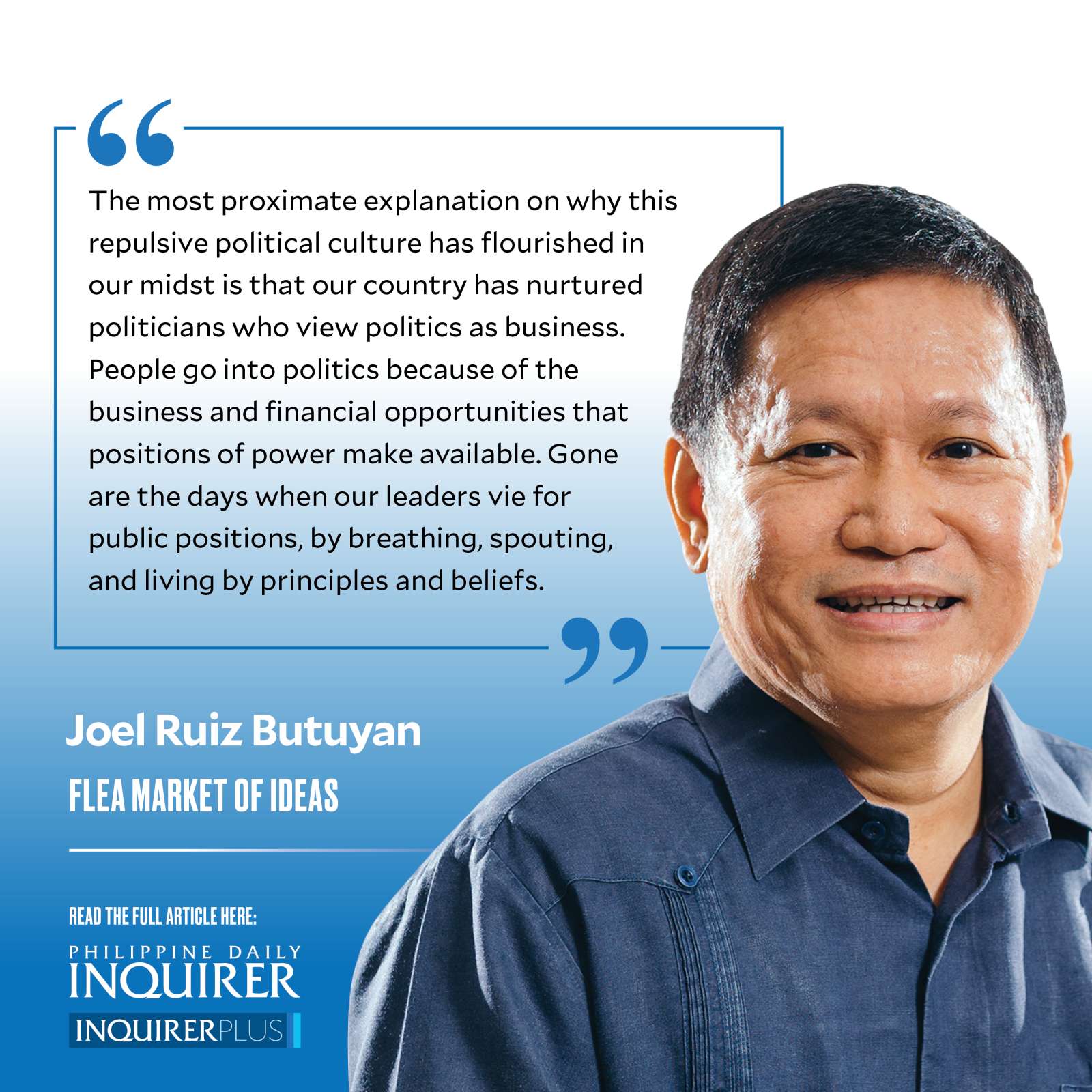Politics as business

It happens every six years. When an election ushers in our country’s new president, a massive migration takes place. Massive migration is normally associated with animals that move to fair weather destinations. But the kind of migration that happens after we elect a new chief executive involves politicians who shift allegiance to the new sovereign.
In the olden days, a new king needs to either wage war or threaten one, in order to collect the allegiance of unsupportive warlords who rule provincial serfdoms. Nowadays, our nation’s new leader needs only to win an election and warlords fall over each other to show allegiance to the new dispensation.
The migration of politicians happens in two ways. They either become new members of the ruling party, or their current political parties enter into a “majority coalition” with the ruling party. In the latter case, the other political parties become appendages of the ruling party.
Under the current Marcos Jr. presidency, the migration has not taken the form of membership in the President’s political party. This is because President Marcos Jr. has a ghost of a party in the Partido Federal ng Pilipinas, to which he has no sanguine affinity. The shift in allegiance is in the form of a “majority coalition” that has professed loyalty to the new President. Thus, we have a supermajority of senators and congresspersons who are subservient to Malacañang. They curtsy with unquestioning approval at the legislative wishes of the President. Cases in point: a national budget that gifts Mr. Marcos with billions in confidential funds, and eager congressional sponsorship of the Maharlika Wealth Fund. Our legislators are being consistent in their fealty to previously sitting presidents.
In contrast to the migratory behavior of our local politicians, there seems to be a culture of party loyalty among politicians in so many other countries, if one reads prevailing political culture overseas. Even when a ruling political party falls from grace and becomes the minority in a new administration, its reelected members stick with their old party. Why has our country bred the kind of politicians who change party affiliation or leader’s allegiance without scruples and shame? Why have perennial turncoats thrived in our midst, but have withered elsewhere?
The most proximate explanation on why this repulsive political culture has flourished in our midst is that our country has nurtured politicians who view politics as business. People go into politics because of the business and financial opportunities that positions of power make available. Gone are the days when our leaders vie for public positions by breathing, spouting, and living by principles and beliefs.
We have business-minded leaders whose eyes, hearts, and brains are focused on the monetary value of their actions, both for themselves and their constituents. This is the reason why we hardly hear of principles, values, and ethics being mouthed by our politicians, save for a handful of opposition and leftist lawmakers. And this is also the reason why our politicians readily join the bandwagon of a new president because the latter becomes the new source of business favors. For all intents and purposes, our legislators have accomplished their “reason for being” when they approve the country’s annual budget that ensures their own and their constituent’s share of the pie.
Even more disheartening is the infection of our electorate with the same political malady because we now view politicians as necessary dispensers of financial favors. Our voters no longer choose leaders based on shared principles. Political leaders are now elected because of their capacity to dole out economic favors.
It’s no wonder, then, that we have thrown away our metrics of right and wrong, morality and immorality, and ethical and unethical character, in choosing our leaders. We have shifted to a different standard of measuring their worth by judging them on their capacity to bestow financial aid, scholarships, health assistance, farm subsidies, and the like.
Our leaders have transformed politics into business. And we, the people, have ditched our politicians in favor of businesspersons.
——————
Comments to fleamarketofideas@gmail.com




















